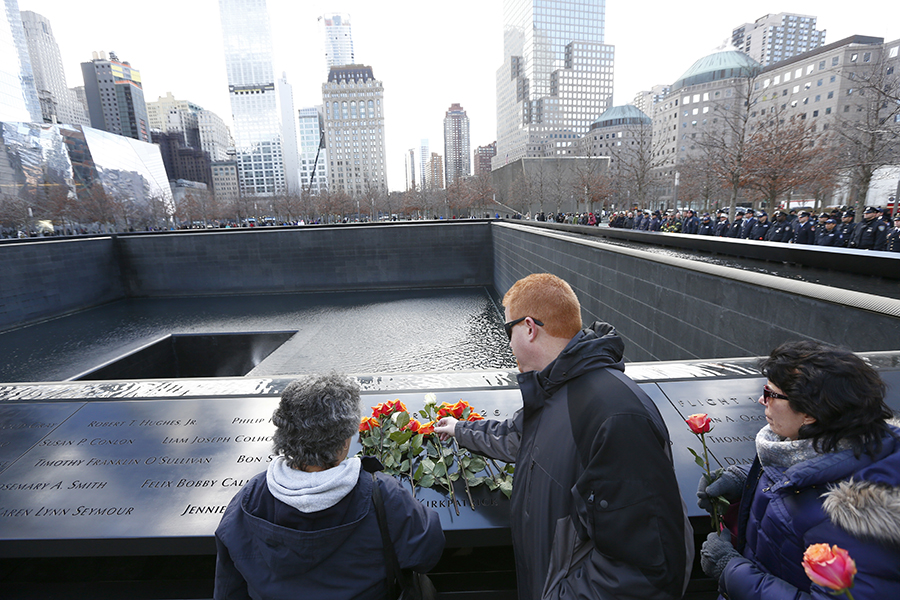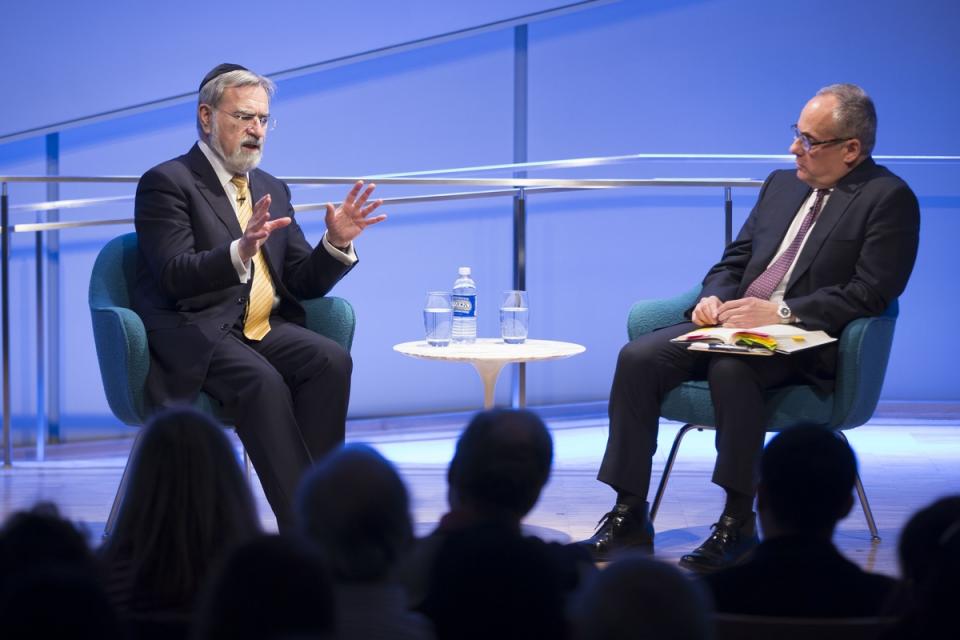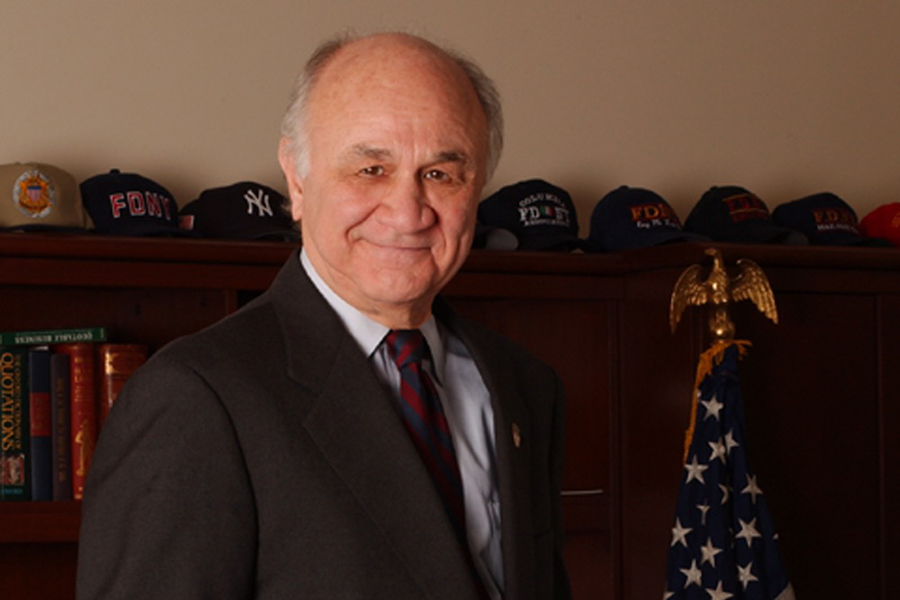Guests for a public program featuring Rabbi Lord Jonathan Sacks at the 9/11 Memorial Museum streamed past a bouquet of flowers placed at the Survivor Tree to honor the victims of the Brussels attacks.
Rabbi Sacks yesterday addressed a full auditorium of people struggling to make sense of another terrorist attack carried out in the name of religion.
“Grief is something that can unite,” said Rabbi Sacks. “It is precisely at these moments when we say ‘let our tears bring us together."
In a conversation with the museum’s vice president of education, Clifford Chanin, Rabbi Sacks discussed ideas presented in his book, “Not in God’s Name: Confronting Religious Violence.” Tracing the roots of violence and discord in key religious texts, Rabbi Sacks argues that, “the trouble is not religion. The human mind is the weapon of mass destruction.”
A follow-up to last fall’s interfaith meeting for peace led by Pope Francis at the museum, this public program is the first in a series with religious thought leaders. An upcoming program features another interfaith discussion with Imam Khalid Latif, Cardinal Timothy Dolan and Rabbi Elliot Cosgrove. The three participated in the peace gathering with Pope Francis on Sept. 25.
“The Museum is built in the place where so many of these ideas are fundamental to how we understand and respond to 9/11.” Chanin said. “Thought leaders like Rabbi Sacks help us frame that challenge.”
Rabbi Sacks, who has been described by former British Prime Minister Tony Blair as an “intellectual giant,” said if religion is considered the problem it should also be part of the solution. “Religion has the power to move people. Like fire warms, it can also burn. We are guardians of the flame,” he said.
By Jenny Pachucki, 9/11 Memorial Content Strategist


